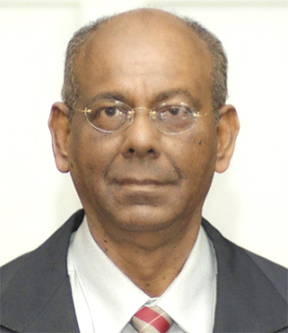After March 21st, CARICOM’s attitude to the Guyana government will be under a high degree of scrutiny as the David Granger administration will be “illegal,” co-founder of A New and United Guyana (ANUG), Ralph Ramkarran says.
“The main consequences of remaining unlawfully in office after March 21st, by which time elections are due, is that the Government will lose international credibility and support, much as the Ramotar Government did in 2015 after it prorogued the National Assembly,” Ramkarran wrote in his column in the Sunday Stabroek yesterday.
Chief Justice Roxane George-Wiltshire recently upheld a no-confidence motion that was passed against the David Granger-led government on December 21. The passage of the motion, currently the subject of a legal challenge brought by government, requires that Cabinet, including the President, resign and that elections are held within three months, unless an extension is agreed to by a two-thirds majority of all the elected members of the National Assembly.
Ramkarran noted that it appears that the Government intends to remain in office, even after March 21st, if the court cases are not over by then, which is very likely.
According to him, governments with resident diplomatic missions in Guyana, particularly those of Western countries, which have been taking strong positions against the usurpation of power elsewhere, will exert diplomatic pressure on the Government. “While they may want to remain in communication because the Government will hold de facto power, official bilateral activity may cease. Visas might be withdrawn. Overseas assets could be frozen. Economic or other sanctions may be imposed. If measures are imposed, they could be implemented selectively and one at a time, or all together,” he said.
“Historically reluctant to say anything adverse against APNU, when it was the PNC, CARICOM’s attitude will also be under a high degree of scrutiny,” Ramkarran added.
According to him, in contrast to its silence about rigged elections in Guyana and its “infamous” embrace of then President Desmond Hoyte at Mustique in 1985, CARICOM “showed no reluctance to shave two years off” the lawfully elected PPP Government by the 1998 Herdmanston Accord, which he acknowledged was by agreement, “but by a PPP Government that was under siege.”
However, he noted that public opinion in the Region is already taking shape against the Government. “As an initial step, CARICOM may well decide that from March 22, when the Government becomes illegal, it will not be invited to any meetings of CARICOM or of its bodies and agencies, or Heads of Government meetings. It might feel that an illegal Government cannot represent the people of Guyana,” Ramkarran posited.
Echoing what he said at a panel discussion organised by the Cheddi Jagan Research Centre at Red House last Wednesday, Ramkarran said that after March 21st, the Government will be illegal. “It will not be entitled to hold office, not entitled to make decisions, not entitled to enter contracts, not entitled to convene the National Assembly, not entitled to pass laws and not entitled to fix a date for elections,” he said.
“It is difficult to speculate what the Government can be called on to do in the face of its illegal existence after the due date for elections. It cannot lawfully exist so that anything that it might do will be illegal. It cannot convene the National Assembly. Even if it does, anything that the National Assembly may enact will be unlawful. When its existence becomes unlawful then the only lawful way forward, as indicated by Mr Christopher Ram, is for the Chancellor of the Judiciary (ag) to take office as President. But what can the Chancellor do in the absence of a lawfully existing National Assembly? We would be in unknown constitutional territory,” the former Speaker of the National Assembly wrote.
He reiterated that Granger and Opposition Leader Bharrat Jagdeo should meet and agree to a compromise date for elections. “As a first step the life of the Government can be extended to March 31st or thereabouts, by which time the CCJ would be expected to rule. If the Chief Justice’s decision is upheld, an elections date would be fixed during July. If the Government succeeds, it carries on to the end of its term,” he said.
If the Government cannot be persuaded to act “reasonably,” the Carter Center should intervene to mediate a solution with the clout of the (US) State Department behind it, Ramkarran added.
“(Former US) President (Jimmy) Carter, whose credibility is respected across the political spectrum, may well be able to persuade the parties along the lines outlined above, or some alternative course which prevents a crisis from developing. President Carter may also use the opportunity to persuade the parties to commit to constitutional reform to provide a framework for political parties to share executive responsibility in the governance of Guyana. President Carter, having led the way to the restoration of democracy to Guyana, believes that this is the only long-term solution to the ethnic politics that perpetuates Guyana’s instability. Both parties have already supported such a process in one form or another,” he said.






